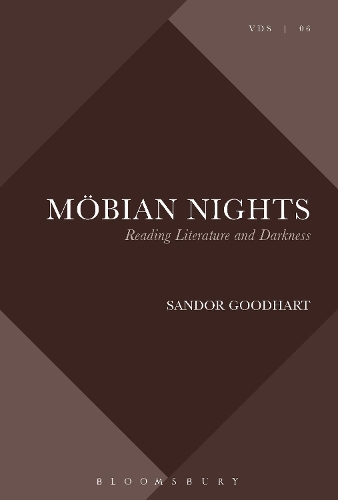
Mbian Nights: Reading Literature and Darkness
(Paperback)
Available Formats
Publishing Details
Mbian Nights: Reading Literature and Darkness
By (Author) Professor Sandor Goodhart
Bloomsbury Publishing PLC
Bloomsbury Academic USA
21st February 2019
United States
Classifications
Tertiary Education
Non Fiction
Ethics and moral philosophy
Literary theory
809.933548
Physical Properties
Paperback
352
Width 152mm, Height 229mm
467g
Description
I died at Auschwitz, French writer Charlotte Delbo asserts, and nobody knows it. Mbian Nights: Reading Literature and Darkness develops a new understanding of literary reading: that in the wake of disasters like the Holocaust, death remains a premise of our experience rather than a future. Challenging customary aesthetic assumptions that we write in order not to die, Sandor Goodhart suggests (with Kafka) we write to die. Drawing upon analyses developed by Girard, Foucault, Blanchot, and Levinas (along with examples from Homer to Beckett), Mbian Nights proposes that all literature works autobiographically, which is to say, in the wake of disaster; with the credo I died; therefore, I am; and for which the language of topology (for example, the Mbius strip) offers a vocabulary for naming the deep structure of such literary, critical, and scriptural sacrificial and anti-sacrificial dynamics.
Reviews
In this beautifully written and strikingly original contribution to post-Holocaust literature, Sandor Goodhart locates in the Mbian structure first described by 19th-century mathematician August Ferdinand Mbius a model for difference or otherness that, in fact, attests to continuity and sameness. Tracing in Mbian fashion an autobiographical line extending from Homer to Beckett, Goodhart shows that we never stand outside the drama the literary presents to us. Suggesting that Mbian logic is endemic to all literary critical discourse, Goodhart, at once an astute philosopher and consummate Jewish storyteller, attests to the 'doubling back of language on itself' in a dark night that makes all writing 'the story of my death.' * Martha J. Reineke, Professor of Religion, University of Northern Iowa, USA *
Mbian Nights presents a sensitive and novel reading of the Mbian as a theoretical and structural frame of interpreting literature. Here the Mbian, not unlike chiastic structures of language and thought, speaks to the interconnected relationship between past and present, difference and continuity, self and other, silence and bearing witness. Through a variety of challenging perspectives, this deeply engaging book gets at the heart of what it means to tell a story. Set against a post-Holocaust landscape and the legacy of night, Goodhart reflects upon a cautionary and discerning way of approaching the world in which we live. * Victoria Aarons, O.R. & Eva Mitchell Distinguished Professor of English, Trinity University, USA *
In this extraordinarily rich and thought-provoking follow-up to his earlier Sacrificing Commentary, Sandor Goodhart offers us a new, 'Mbian' basis for a general theory of the literary, which encompasses an impressively wide range of texts and authors, from Homeric epic to Derridean deconstruction. The intellectual tour de force does not for a moment, however, lose sight of the real historical crisis of our time; for over it all hovers the shadow of Auschwitz. Mbian Nights will prove necessary reading for anyone seriously interested in literature and literary criticism, and their relation to each other, as well as to philosophy, Biblical religion, and ethics. * Bruce K. Ward, Professor of Religious Studies Emeritus, Thorneloe University at Laurentian, Canada *
Author Bio
Sandor Goodhart is Professor of English and Jewish Studies at Purdue University, USA. He is the author of editor of five books, including The Prophetic Law. Essays in Judaism, Girardianism, Literary Studies, and the Ethical (2014), Sacrifice, Scripture, and Substitution: Readings in Ancient Judaism and Christianity (co-edited with Ann Astell, 2011) and For Ren Girard. Essays in Friendship and Truth (co-edited with Jrgen Jrgenson, Tom Ryba, and James G. Williams, 2009).
